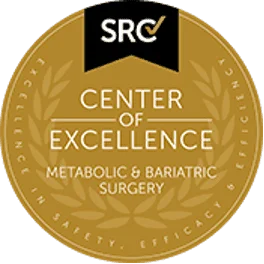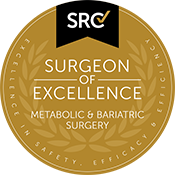Hair Loss
Is common during periods of rapid weight loss but will regrow in time.
Please ensure an adequate protein intake (60-80g per day). This may reduce hair loss.
Pregnancy
Can I drink alcohol after surgery?
In general alcohol consumption should be limited to small amounts, no more than a glass of wine per day. It does after all contain calories.
Will I be sick a lot after the operation?
Weight loss surgery limits food intake. If you feel nauseated or sick on a regular basis, it may mean that you are not chewing your food well or that you are not following the diet rules
properly. You should contact us if this problem persists. Vomiting should be avoided as much as possible. It can cause the small stomach pouch to stretch. It can also lead to slippage of part of the stomach through an adjustable band, which would reduce the success of the operation. In some cases, it would also require another operation.
How long will it take to recover after surgery?
If your surgery is performed laparoscopically, patients typically spend 24 – 48 hours in the hospital. It takes most patients about 1 -2 weeks to return to work and a month to six weeks to resume exercising. In the case of open surgery or if there are complications, recovery may take longer.
How much weight will I lose?
Weight-loss results vary from patient to patient, and the amount of weight you may lose depends on several things. You need to be committed to your new lifestyle and eating habits. Obesity surgery is not a miracle cure, and the pounds won’t come off by themselves. It is very important to set achievable weight-loss goals from the beginning. A weight loss of 1/2 to 1 Kg a week in the first year after the operation is possible. Twelve to eighteen months after the operation, weekly weight loss is usually much less if any. Your main goal is to have weight loss that prevents, improves, or resolves health problems connected with severe obesity.
How do the weight-loss results with the adjustable gastric band compare to those with the gastric bypass?
At this stage, no randomised control trials compare the results of laparoscopic adjustable banding with gastric bypass. However, extensive literature studies would suggest that gastric bypass has significantly better weight loss with resolution of co-morbidities compared to laparoscopic adjustable banding.
A recent meta-analysis in JAMA (Oct 13th 2004, vol. 292 #14) by Buchwald found that gastric bypass was associated with approximately 68% excess weight loss compared to 50% excess weight loss with adjustable banding. Approximately 75% of patients with gastric bypass will achieve good to excellent weight loss as opposed to 50% with adjustable gastric banding.
The potential rewards of gastric bypass need to be weighed with the increased risks of this procedure.
Does weight loss surgery require frequent office visits after surgery?
Check-ups are a normal and a very important part of the weight loss surgery follow-up.
Does weight loss surgery limit any physical activity?
The weight loss surgery does not affect or hamper physical activity including aerobics, stretching and strenuous exercise.
How is the band adjusted for those who have an adjustable band?
Adjustments can be done in an outpatient clinic or office. A fine needle is passed through the skin into the access port to add or subtract saline. This process most often takes only a few minutes. Most patients say it is nearly painless.
Do I have to be careful with the access port just underneath my skin?
There are no restrictions based on the access port. It is placed under the skin in the abdominal wall, and once the incisions have healed it should not cause discomfort or limit your movements or any physical exercise. The only sensation you may have from the port is when you go in for adjustments. If you feel persistent discomfort in the port area, let us know as soon as possible.
Can the band be removed?
Yes. In most cases this can be done laparoscopically. The stomach generally returns to its original shape once the band is removed. After the removal, though, it is likely you will return to your original weight or even gain more.
Will I need plastic surgery for the surplus skin when I have lost a lot of weight?
That is not always the case. As a rule, plastic surgery will not be considered for at least a year or two after the operation. Sometimes the skin will mold itself around the new body tissue. You should give the skin the time it needs to adjust before you decide to have more surgery.
Is it true that the adjustable gastric band seems “tighter” in the morning?
This is a fairly common feeling, especially for people with bands that are tight or just after an adjustment. During the day the water content in the body changes and this may cause the band to feel “tighter” some of the time. Some women have also noticed that the band feels tighter during menstruation.
Will I feel hungry or deprived with the weight loss surgery?
The adjustable gastric band makes you eat less and feel full in two ways – by reducing the capacity of your stomach and increasing the time it takes food to get through the digestive system. After a small meal, the amount of which varies from person to person, you should feel full. If you follow the nutrition guidelines when you choose your food and then chew it well, you should not feel hungry or deprived. Remember that weight loss surgery is a tool to help you change your eating habits.
Will I need to take vitamin supplements?
You will. You may not get enough vitamins from three small meals a day. At your regular check-ups, your specialist will evaluate whether you are getting enough vitamin B12, folic acid, and iron.
What about other medication?
You should be able to take prescribed medication. You may need to use capsules, break big tablets in half or dissolve them in water so they do not get stuck in the stoma and make you sick. You should always ask the doctor who prescribes the drugs about this.
What if I go out to eat?
Order only a small amount of food, such as an appetizer. Eat slowly. Finish at the same time as your table companions. You might want to let your host or hostess know in advance that you cannot eat very much.
What about alcohol?
Alcohol has a high number of calories. It also breaks down vitamins. An occasional glass of wine or other alcoholic beverage, though, is not considered harmful to weight loss.
Can I eat anything in moderation?
At 6 weeks post surgery, you may eat most foods that don’t cause you discomfort. However, because you can only eat a little it is important to include foods full of important vitamins and nutrients such as those recommended by our surgeon and/or dietitian. If you eat foods that contain lots of sugar and fat or drink liquids full of “empty” calories, such as milkshakes, the effect of the weight loss surgery may be greatly reduced or cancelled.
Will I suffer from constipation?
Let us know before surgery if you have a tendency to constipation. There may be some reduction in the volume of your stools, which is normal after a decrease in food intake because you eat less fibre. This should not cause you severe problems. If difficulties do arise, let us know as soon as possible.



